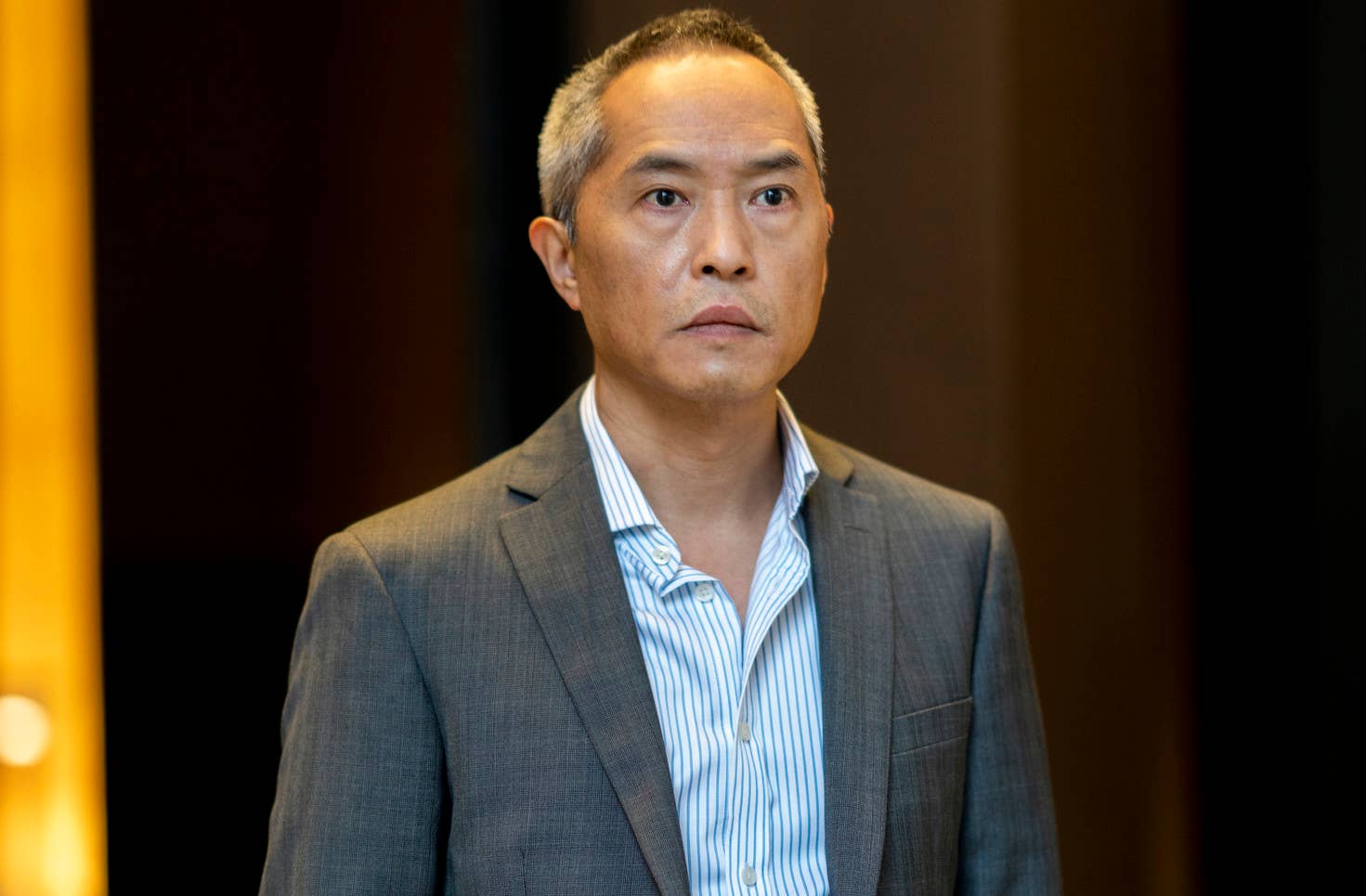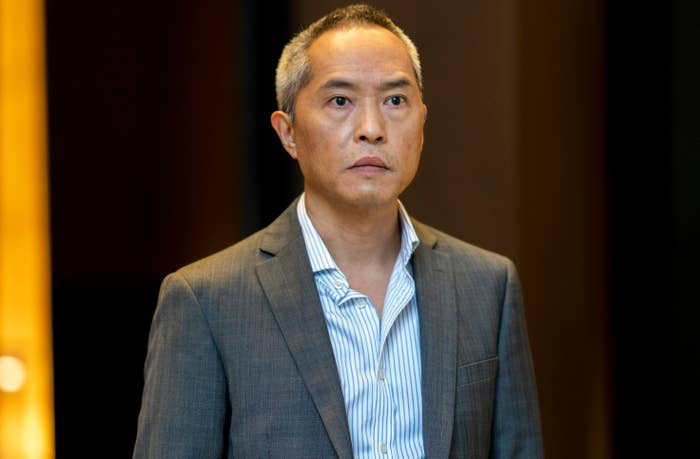
Spoilers for episode four of Industry’s Season 2 below.
HBO’s Industry spends a lot of time on the lives of Harper Stern (Myha’la Herrod) and her fellow Pierpoint contemporaries. As the entry points into this financial world, their lives in and out of the London investment bank Pierpoint & Co. are the show’s primary focus. As such, we don’t know much about the external life of Harper’s boss, Eric Tao (Ken Leung). Audiences get bits and pieces about Eric’s home life throughout the first season, but his demeanor outside the trading floor is largely a mystery—until now.
In the fourth episode of Season 2, “There Are Some Women…,” Eric heads to New York to visit the American branch of Pierpoint’s operation in the wake of losing a major client. While there, Eric comes face-to-face with his past, including the ex-wife of his former mentor and many other factors. With his back against the wall, Eric makes a last stand against potentially getting pushed out from Pierpoint. The episode paints Eric as a cowboy, saddling up for one last gunfight before hanging up his holster. This metaphorical gunfight doesn’t go his way, and he’s promoted off the trading floor into a client services job.
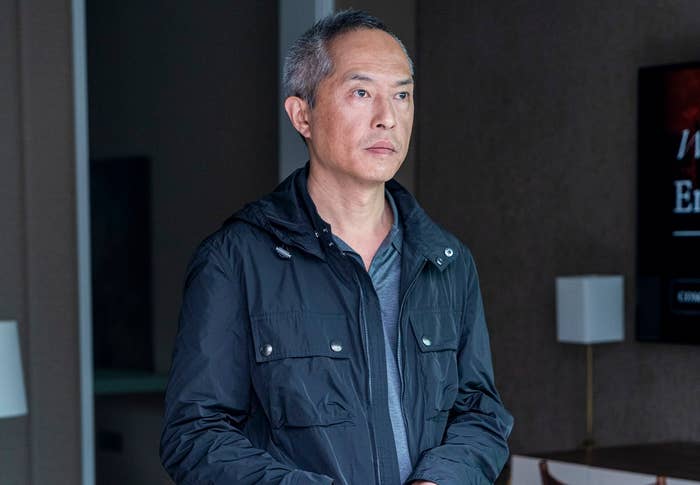
For Eric, who often roams the trading floor like a lion on the hunt, it’s a fate worse than death—as evidenced by the prison-like scaffolding on the exterior of his new office. For actor Ken Leung, the episode allows him to dig deeper into what makes his character tick. “When you remove the trading floor, and you’re actually in a new environment [with] new characters, it opens up a window to who you’re playing,” Leung tells Complex. “For me, it offers more rabbit holes to go down. I love that; that’s what makes it fun.”
In the wake of this big episode, Complex sat down with Leung for a wide-ranging conversation around Eric’s arc this season, the return of a beloved piece of clothing, what makes Industry different from other projects he’s worked on, his experience playing Commander Zhao on Netflix’s adaptation of Avatar: The Last Airbender, and much more. This interview has been condensed for length and clarity.
How much pressure was there for you to share the screen with that beloved purple Pierpoint hoodie?[Laughs.] I mean, I didn’t think anything of it. I was home. I was barbecuing. [Laughs.] It’s so funny that hoodie made such an impact. I don’t think we ever expected it to. I think because it looks like—my interpretation is that it’s a purple hoodie.
So in one sense, he looks like a little boy. He’s not in a power suit. Yet, you can still see the Eric in it. You can almost see him more in it because it’s not a power suit, and it gives it the purple hoodie kind of a new identity, which I think is why. [Laughs.]
I love how it’s become kind of this shorthand for Eric in moments of trouble. Like anytime we see it now, it kind of feels like a sign that he’s on thin ice.
Oh, that never occurred to me! That’s amazing. That’s true.
How much did Mickey and Konrad tell you about your arc this season ahead of time versus how much did you find out from reading the scripts?
They did give me a kind of heads up. We had a pre-season zoom chat, and they just wanted to give me a heads up that we would see Eric in other parts of his life. I think they might have told me that we’d be spending time off the trading floor. I don’t know if they mentioned that I’d be going to New York, but I got the sense we’d see his family more and that other things were gonna happen that did not happen in Season 1. But it was that vague. Beyond that it, it was script by script.
What was your reaction then to getting the script for this episode and realizing you were gonna spend all this time in New York, with your family, and getting to see more of Eric off the floor?
I love that. I love knowing my character more. Even within trading floor scenes, there are times when we try a different take or we try a different interpretation of a certain line or situation, and that’s what makes it a lot of fun. When you remove the trading floor, and you’re actually in a new environment [with] new characters, it opens up a window to who you’re playing. For me, it offers more rabbit holes to go down. I love that; that’s what makes it fun.
Can you give me an example of those rabbit holes?
The ex-girlfriend, Holly. I wouldn’t guess that he would have one. I wouldn’t guess that he would have something maybe unresolved—that’s what I mean to say. Also, my relationship to New York. I mean, things that would just not occur to me, even if you said, “Oh, Eric’s gonna go to New York.” I don’t know if you recall: but my friend in the restaurant who works there references the anti-Asian violence that has been happening. Eric kind of doesn’t know what he’s talking about. I love that. Because being from New York, I intimately know what he’s talking about, but to play the other side of stuff, I welcome that.
We learn that Eric’s relationship with his mentor was complicated. Do you think that management style rubbed off on how Eric treats Harper or how he treated DVD?
You mean because they’re both from New York?
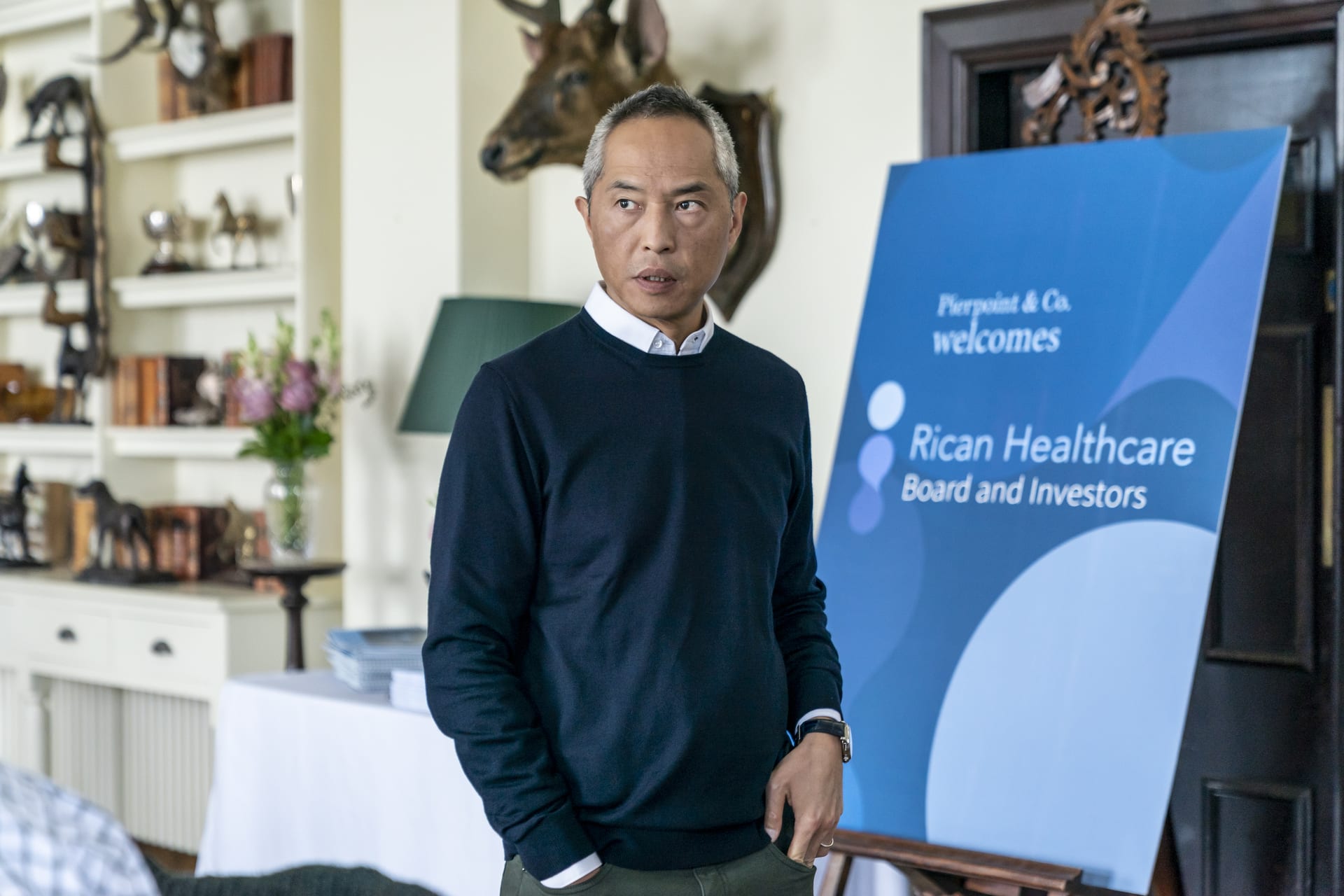
No, more so that if you have a mentor figure in your life who makes an impact on you as you navigate this new environment, how much of one’s behavior becomes modeled off of that person? I was wondering how much of that mentorship experience might filter into Eric’s perspective.
This isn’t what you’re asking, but how you’re asking makes me think of this—which I think is interesting because I’ve not consciously thought about it—when Eric realizes that it’s Danny coming to be a mole in plain sight. He seemingly is insulting the London branch. There’s a kind of ownership that Eric maybe unconsciously has started to embrace.
“You’re stepping into my world now. This is no longer New York.” Even something so small as a line where he says “behove” instead of “behoove” which is more of a British pronunciation of the word that he has unknowingly unconsciously adopted. So I think there are these tiny pieces of Eric—that if you really were looking for them—where he has embraced being in London and this new culture in a way he is protective of. So I know that’s not what you’re asking at all.
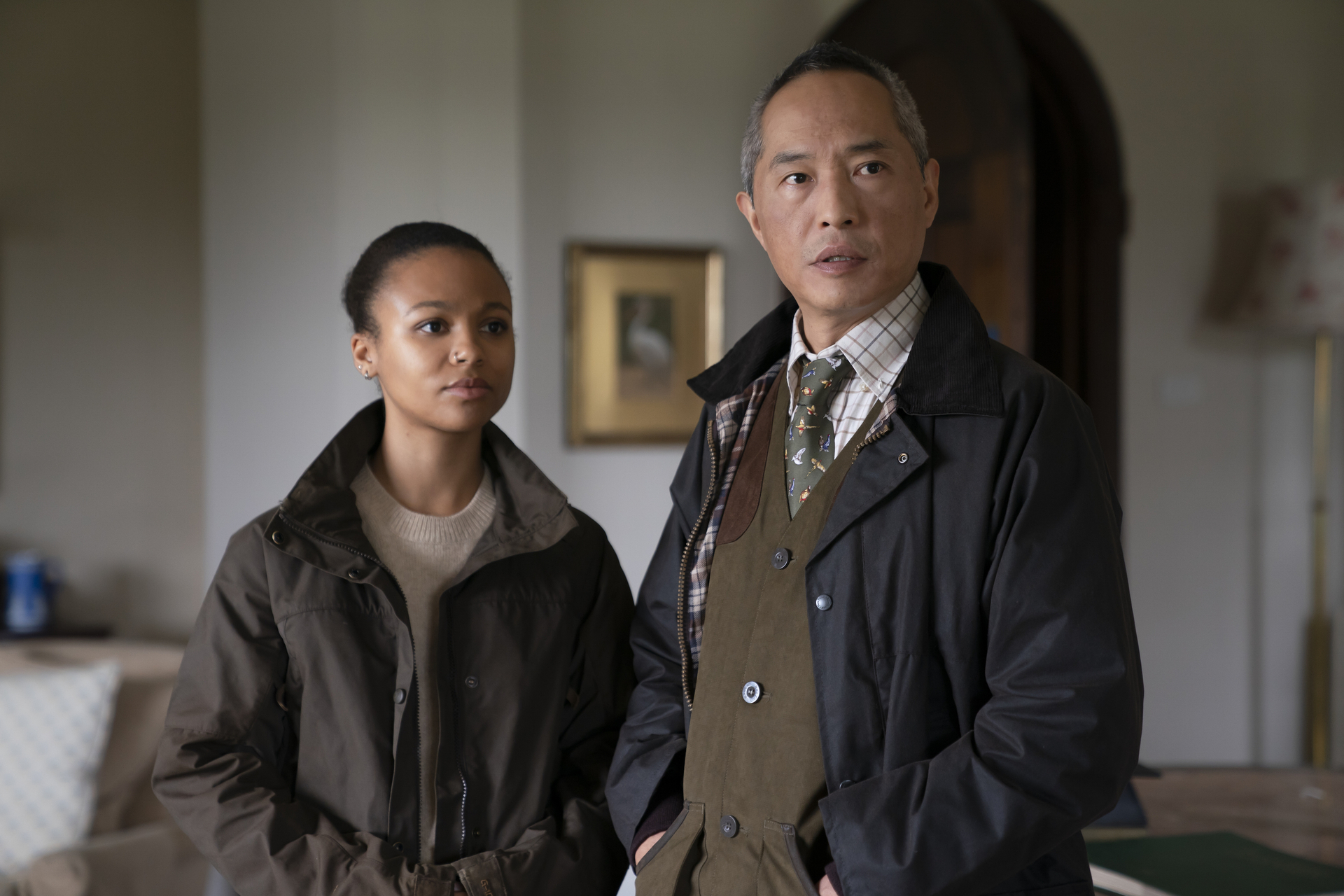
I wanted to switch gears slightly and ask about what your Avatar experience has been like so far. I know that’s a beloved property for many people, and I was excited to see you join that. I’m not sure where you all are in it, but without giving away too much, what’s that journey been like for you?
It was very unique. I’ve never been on something where 80 to 90 percent of the faces in front and behind the camera are minorities, or either Asian, South Asian, East Asian, or First Nations. It was just the most diverse cast I’ve ever been part of; that was surreal, on top of it being such a surreal kind of production.
I did find it was logistically difficult because my scheduling was such that—and I don’t know if sharing this is useful or anything—but my scheduling was such that I would like shoot two days and be off for like a month. It was hard to build momentum, you know? If I’m working, I like to be working a lot because you build momentum. You’re in the soup of it, and I just like being in the zone of it. So to constantly be taken out of the zone and then have to reenter [it] took some figuring out.
On a practical level, it was difficult in a way that I can’t think of another project that was like that. I think part of it [is] cause the cast is so huge and also COVID and blah, blah, blah. And it was that character. Are you familiar with Avatar and the characters and stuff?
I’ve seen a few episodes. I will candidly admit that the show is a huge blind spot for me that I want to rectify here pretty soon. But I know the importance it carries.
I didn’t know anything about it. I didn’t know anything about when I was cast. I watched the first season, and the character is—we never understand where he’s coming from. It’s not part of the story. For me, the challenge was having a reason and embodying a reason that you’re never gonna get to express. So that was a little frustrating for me. As far as my experience, I come across a lot of roles that call for the inexplicably angry all-the-time Asian man. It’s gotten to the point where [laughs] it’s like, “What? Is this how we’re seen? What is this? What’s going on?”
I went in knowing it was this character, but because it was so beloved and huge and had made such a stamp on the culture, it was like, “Well, if there’s any project worth investigating this trope, it’s this.” I took it that way. I kept looking for spaces where I can break through a little bit; there’s a window to a person. Towards the end, I started to find some, so it was okay. Yeah. Interesting project. I may have already shared too much [laughs].
That ties back to Industry, though, because it sounds like part of the gift of this part is having the opportunity to continually look through those windows.
For sure. I feel like the way the character has evolved tells us that Mickey and Konrad don’t think of Eric as a trope, even remotely. They think of him as a person, and they’re thinking about him deeply. I can only assume that that will continue. It would be weird if we just kept seeing Eric wielding his bat all the time. [Laughs.]

